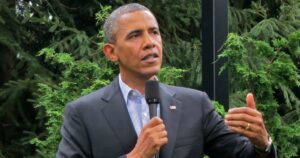Trump greenlights military strikes on Latin American drug cartels
President Donald Trump has just dropped a bombshell by secretly authorizing military action against Latin American drug cartels labeled as foreign terrorist organizations by the United States.
In a nutshell, this bold move targets cartels trafficking deadly drugs like fentanyl across the US-Mexico border, while also roping in sanctions, extraditions, and tariff threats to nudge Mexico and Canada into the fight against smuggling.
Let’s rewind a bit—Trump has long been vocal about using military might to choke off the drug flow and curb unauthorized migration at the southern border. It’s a promise that’s now taking shape with this covert authorization, as revealed by the New York Times. Clearly, the man isn’t just talking the talk anymore.
Targeting Cartels as Terrorist Threats
This isn’t a solo mission, either—the operation unites heavy hitters like the Department of Defense, Justice Department, Department of Homeland Security, Office of the Director of National Intelligence, and the Treasury. It’s a full-court press, showing that Washington means business when it comes to dismantling these criminal networks.
Among the first targets? High-ranking members of Cartel del Noreste, a notoriously violent Mexican outfit already branded a terrorist group by the U.S., now face Trump’s sanctions. Turns out, actions do have consequences.
Trump’s also playing hardball with our neighbors, wielding the threat of tariffs to ensure Mexico and Canada step up their anti-smuggling game. It’s a classic move—why go it alone when you can twist a few arms diplomatically? Some might call it coercion, but others see it as smart leverage.
Venezuelan Leader in the Crosshairs
Then there’s the spotlight on Venezuelan President Nicolas Maduro, a figure the U.S. has tied to cartel activity and slapped with a wanted status. Attorney General Pam Bondi didn’t mince words, stating in a video message, “Maduro uses foreign terrorist organizations... to bring deadly violence to our country.” Well, if that’s not a call to action, what is?
Bondi upped the ante by announcing a staggering $50 million reward for intel leading to Maduro’s arrest. That’s not pocket change—it’s a clear signal this administration isn’t playing games with narco-traffickers.
A source close to the White House, as reported by the New York Post, declared, “The president is determined to... completely destroy Maduro’s Cartel de Los Soles.” That’s fighting talk, but let’s be real—disrupting entrenched cartels is a tall order, even for a determined leader.
Extraditions and Strong Statements
Weeks after taking office, the White House flexed its muscle by announcing the extradition of 29 members from various Mexican cartels. At the time, the administration stated, “The Trump Administration is declaring these thugs as terrorists... and demanding justice for the American people.” It’s a stark contrast to past leniency, and a reminder that ignoring crime doesn’t make it disappear.
Deputy White House press secretary Anna Kelly reinforced the mission, saying to Fox News Digital, “President Trump’s top priority is protecting the homeland.” Critics might scoff at the tough-on-crime rhetoric, but when fentanyl is flooding communities, isn’t homeland security worth the fight?
Still, not everyone’s on board with boots on the ground—Mexican President Claudia Sheinbaum made it crystal clear on Friday that U.S. forces won’t be stepping onto Mexican soil. She stated, “It has nothing to do with Mexican territory.” Fair enough, but it raises questions about how far this cooperation can really go.
Balancing Toughness with Diplomacy
Sheinbaum’s stance is a polite but firm reminder that sovereignty matters, even in a joint fight against cartels. It’s a delicate dance—Trump’s pushing for results, but international boundaries aren’t just lines on a map. Will tariff threats be enough to bridge the gap?
At its core, this policy of designating cartels as terrorist groups and authorizing military force signals a shift toward treating drug trafficking as a national security crisis, not just a border issue. It’s a perspective long overdue for many who’ve watched progressive policies struggle to address the human toll of addiction and violence.
Make no mistake, though—this isn’t a quick fix, and the road ahead will test both resolve and diplomacy. Trump’s approach may ruffle feathers, but for communities ravaged by cartel-driven crime, it’s a glimmer of hope that someone’s finally taking the gloves off. Let’s just hope the strategy matches the rhetoric.



